
Shoppers walk along Oxford Street in London. /Frank Augstein/AP Photo
Shoppers walk along Oxford Street in London. /Frank Augstein/AP Photo
When great tragedy befalls us, it often comes as a bolt from the blue: something that nobody could predict, a terrible lack of luck, evidence of how capricious fate can be and how helpless we are. But at other times disaster can be all too predictable, a trail blazed to devastation by a pitiful lack of preparation and a refusal to understand the evidence even as it mounts around us. In some ways, these are harder to bear: rather than betray our insignificance, they display our ineptitude.
01:49
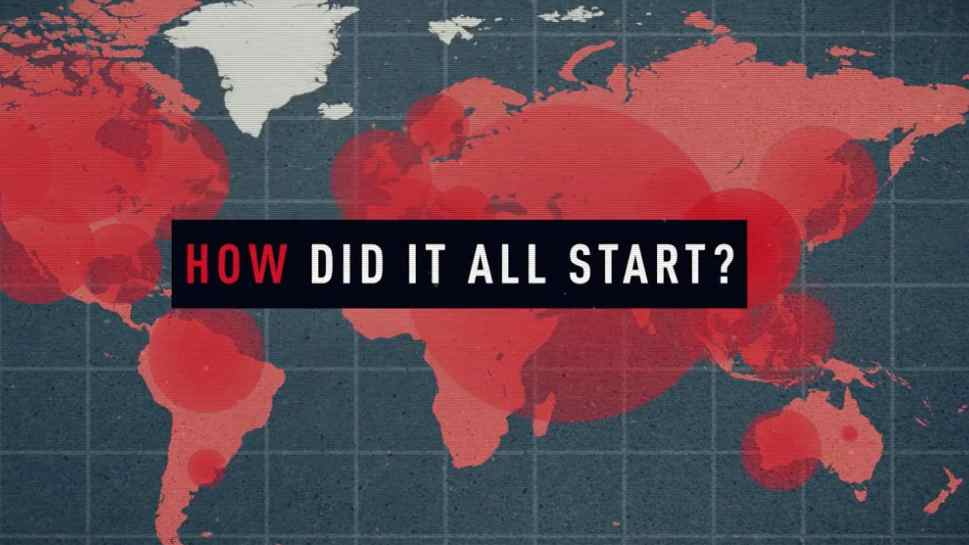
Scientists around the world knew the emergence of a previously unknown virus was not a matter of if, but when. Viruses that can jump species and infect humans are far from uncommon and far from new: zoonotic (from the Greek zoon 'animal' and nosos 'sickness') diseases have been around for millennia, from the Black Death to Ebola via various types of influenza. Of the many ways disease can spread, respiratory pathogens are the hardest to manage because they spread aerially, like a cold or a flu.
The scientific world, governments and the World Health Organization (WHO) have spent millions preparing pandemic response plans. So when a cluster of cases of an unusual flu was documented in Wuhan, China at the turn of the year, experts around the world immediately sounded the alarm bells.
READ MORE Europe is prepared to deal with the spread of coronavirus
02:55
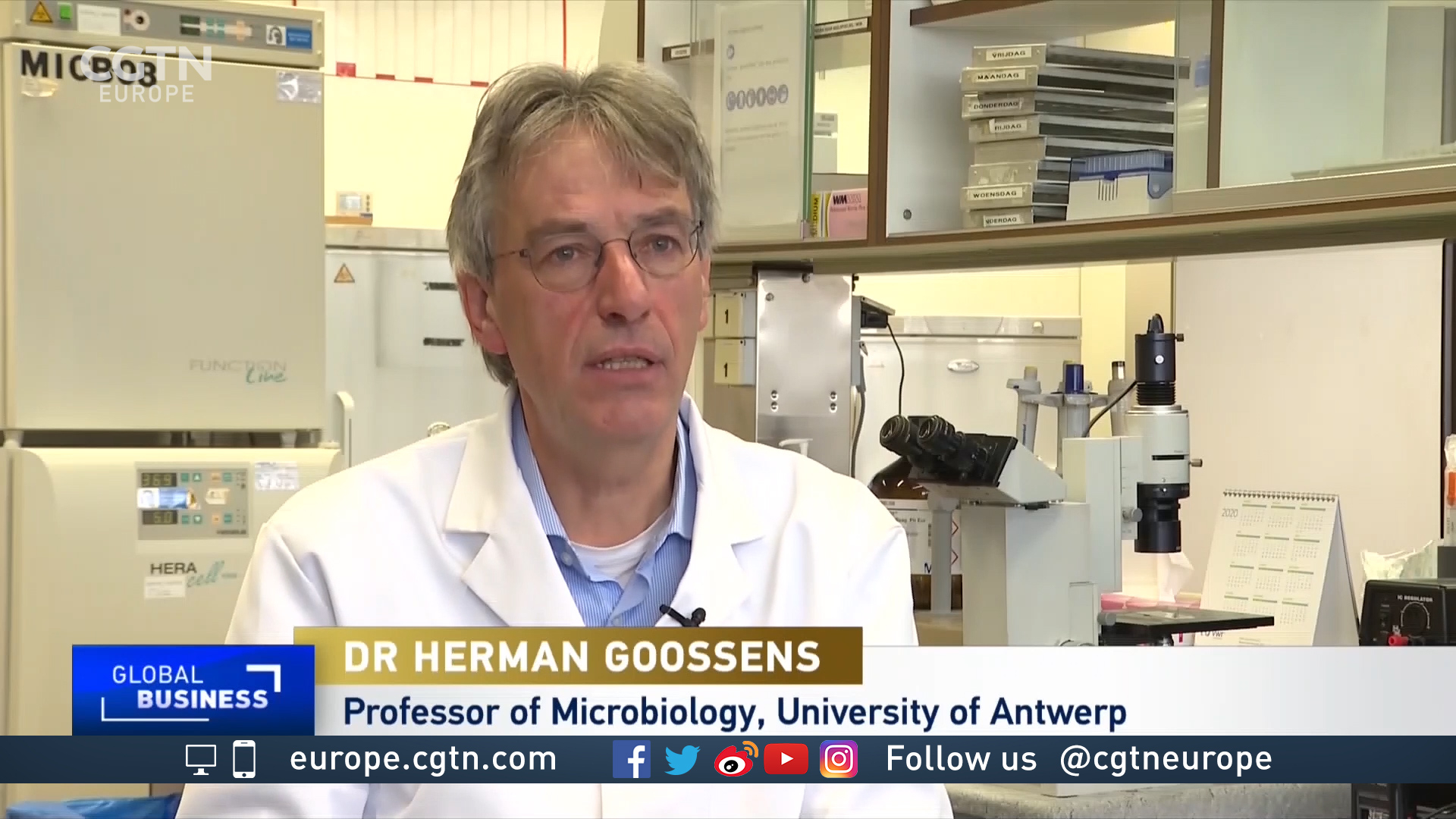
In the UK, Devi Sridhar – the chair of global public health at Edinburgh Medical School and director of the Global Health Governance program – tweeted as early as 16 January calling for swift action and preparations. "Take it seriously," she warned, "because cross-border spread (planes mean bugs travel far and fast), likely human-to-human transmission and previous outbreaks have taught that over-responding is better than delaying action."
The experts were clearly rattled, but authorities were not exactly speedy in their response to the existential threat. Half a world away from China, many European governments had their minds on other things: besides the usual distractions of electoral cycles and regional diplomacy, they faced the ever-controversial subject of climate change and the looming economic uncertainty around the Brexit negotiations. In the U.S., president Donald Trump was busy facing down impeachment.
But soon, any other topic would be pushed off the front pages and homepages. In Europe, the news was about to go viral.

Brexit supporters celebrate during a rally in London on 31 Jan 2020 as the UK leaves the European Union. /Frank Augstein/AP
Brexit supporters celebrate during a rally in London on 31 Jan 2020 as the UK leaves the European Union. /Frank Augstein/AP
Deja vu
There was a familiar ring to the crisis. To the old hands on the newsdesk, a deadly virus emanating from a faraway place was a repeat story: hadn't we done this before? Indeed, the SARS outbreak of 2002-04 was so entrenched in the popular consciousness that it inspired Hollywood to make the 2011 movie Contagion.
To make that film as realistic as possible, director Steven Soderbergh heavily consulted Ian Lipkin, a world-renowned virologist and head of Columbia University's Center for Infection and Immunity who had flown to Beijing to help in the fight against SARS. In the publicity blitz for the film, Lipkin noted: "We've been through this with SARS. We will be through it again."
And so it proved. In contact with his Chinese colleagues in December, Chicago-born Lipkin flew over in January – visiting senior officials, including Premier Li Keqiang, to discuss the outbreak. Quarantined upon his February return to the U.S., he was given the all-clear but in late March revealed he had caught COVID-19 in his home country.
Noting that "Germany put a rapid emphasis on testing and containment and managed the outbreak – there's nothing else to explain why they have such a low death rate," Lipkin unfavorably compared that swift reaction with that of his home country. "We were slow out the gate. So was the UK. The people of these nations have paid a price," he said.

A sign hangs on the entrance gate at the U.S. border with Canada. /Jeffrey T. Barnes/AP
A sign hangs on the entrance gate at the U.S. border with Canada. /Jeffrey T. Barnes/AP
Diligence
The suspicion lingers that many countries in the West were complacent. By contrast, places both within China (such as Hong Kong) and outside it (such as Singapore and Japan) – which were directly impacted by SARS, had a strikingly different reaction to the possibility of another deadly virus wreaking havoc on the population and economy.
With the chaos and disruption fresh in their populations' minds, the authorities there were swift to act. They had spent the past 15 years liaising and preparing with experts across the world such as Martin Hibberd, a professor of emerging infectious diseases at the London School of Hygiene and Tropical Medicine.
"Singapore realized, as soon as Wuhan reported it, that cases were going to turn up in Singapore. And so they prepared for that," Hibberd told the Sunday Times. "The interesting thing for me is, I've worked with Singapore in 2003 and 2009 and basically they copied the UK pandemic preparedness plan. But the difference is they actually implemented it."
Hong Kong took the WHO recommendations to the letter and diligently embarked on a rigorous program of testing everyone with symptoms; those who tested positive were quarantined and contact tracing began to isolate all that had come into contact with them.
Running alongside this were controls with affected areas. The scale of the operation meant that unoccupied housing estates and housing camps were turned into quarantine facilities. Social distancing and school closures were also implemented, indicating that the Hong Kong residents welcomed the measures, but they did not choose to completely lock down.

A passenger waits at the immigration counter at Kuala Lumpur, Malaysia. /Vincent Thian/AP photo
A passenger waits at the immigration counter at Kuala Lumpur, Malaysia. /Vincent Thian/AP photo
Some countries reacted with alarm and preparations, given experience of MERS and SARS. Containment became the imperative regardless of cost. Others treated COVID-19 like a bad flu that would spread across the population
- Devi Sridhar, chair of global public health at Edinburgh Medical School and director of the Global Health Governance program
Dithering
In the US and Europe, the threat was not so apparent – to the general public, even if scientists were alarmed. "From the early days in February, if not in late January, it was obvious this infection was going to be very serious and it was going to affect more than just the region of Asia," said infectious disease specialist Jeremy Farrar, a UK government advisor. "I think it was very clear that this was going to be an unprecedented event."
But many countries dithered about facing down the virus. In mid-April, Devi Sridhar – the global health expert who had warned "take it seriously" in January – noted how "Some countries reacted to COVID-19 with alarm and preparations, given experience of MERS and SARS. Containment became the imperative regardless of cost.
"Others treated COVID-19 like a bad flu that would spread across the population."
Unaffected by the worst of the SARS crisis, authorities in many countries seemed to think Europeans and Americans wouldn't accept the drastic lockdown measures implemented so quickly and efficiently in Asia. So those hundreds of millions of people kept on circulating – and so did the virus.
If you have an ongoing infection, you have to do your best to ensure that people infected don't leave your country. If there is any suggestion that someone may be bringing the virus in their body you find it early and you stop any ongoing transmission
- Margaret Harris, World Health Organization
As the numbers rose, governments in the West started to impose border closures. By 1 April, according to Pew Research Center analysis, around 93 percent of the planet's population lived in countries with travel restrictions, with 39 percent behind borders completely closed to non-citizens and non-residents. Some countries, such as Ecuador, even closed the doors on their own citizens and residents who happened to be abroad.
The WHO counseled against border closures, instead advising quarantine and screening – including for those leaving the country. In an interview with CGTN Europe, the organization's Margaret Harris explained: "If you have an ongoing infection, big outbreaks, you have to look at exit screening. You have to do your best to ensure that people infected don't leave your country.
"Countries at high risk, we advise them to do entry screening, ensure that you test – or as many countries are now doing, asking people to quarantine for 14 days. If there is any suggestion that someone may be bringing the virus in their body you find it early and you stop any ongoing transmission. At the moment, countries are dealing with it by shutting borders: we prefer to see borders open but with those restrictions."
READ MORE WHO Q&A: Screening, not closing borders, is the way to stop COVID-19
01:21
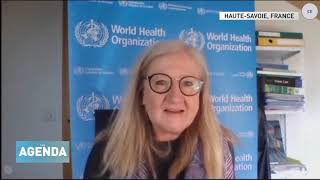
A (rapidly) globalized problem
While protecting the border is understandable, if arguable, in this instance it was far too late anyway. Once you know there's a contagious disease, it is already out there, and on a planet shrunken by globalization and rapid transport, humans move around a lot.
China locked down Wuhan, the original outbreak epicenter, on 23 January – but mayor Zhou Xianwang soon announced that about five million people had left the city beforehand. Wuhan is one of China's most interconnected cities, and China is one of the world's most interconnected countries.
At any given moment, there are between 8,000 and 20,000 planes in the air above our planet. To mix metaphors, the evil genie was already well out of the bottle, and by closing their borders authorities were merely bolting the stable door long after their diseased horses had bolted back in – and were prancing merrily around infecting their stablemates.
00:20
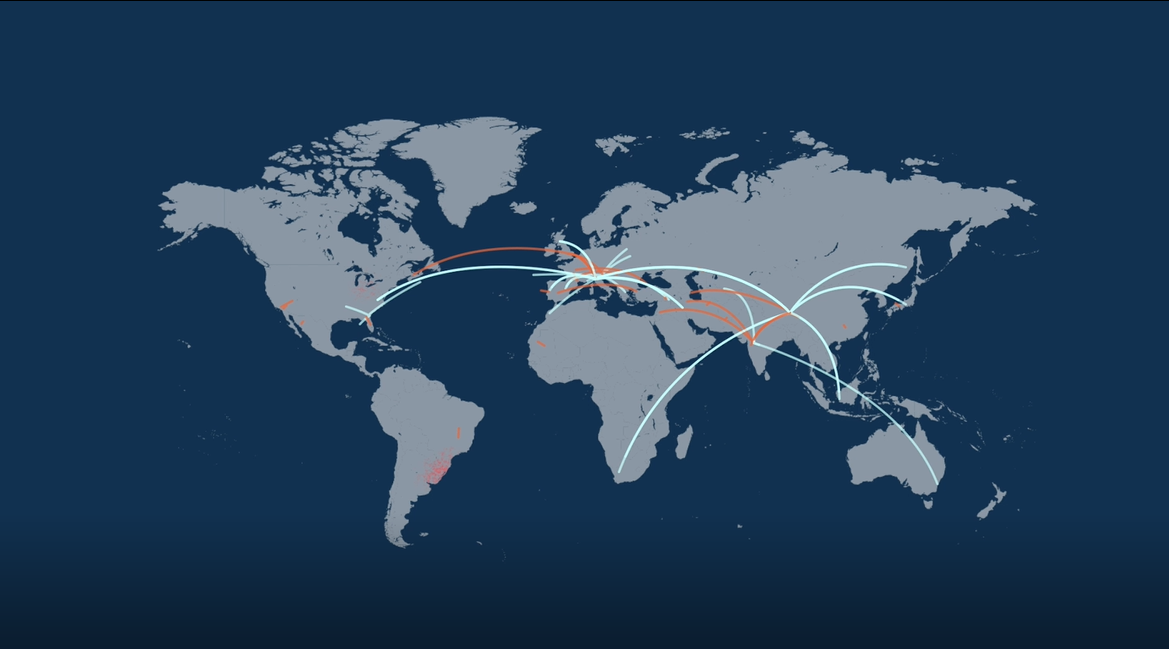
Soon began the blame game, with Sinophobia predictably on the rise, to the disgust of many including Lipkin. The Contagion-consulting virologist has been awarded two medals for his work by China, having worked with health experts there for the 17 years since the SARS crisis. "None of this is going to be resolved through baiting and nationalism," he said. "These are global problems that have to be addressed with global solutions."
READ MORE Coronavirus sparks more epidemics: Fear, hatred and sinophobia
02:10
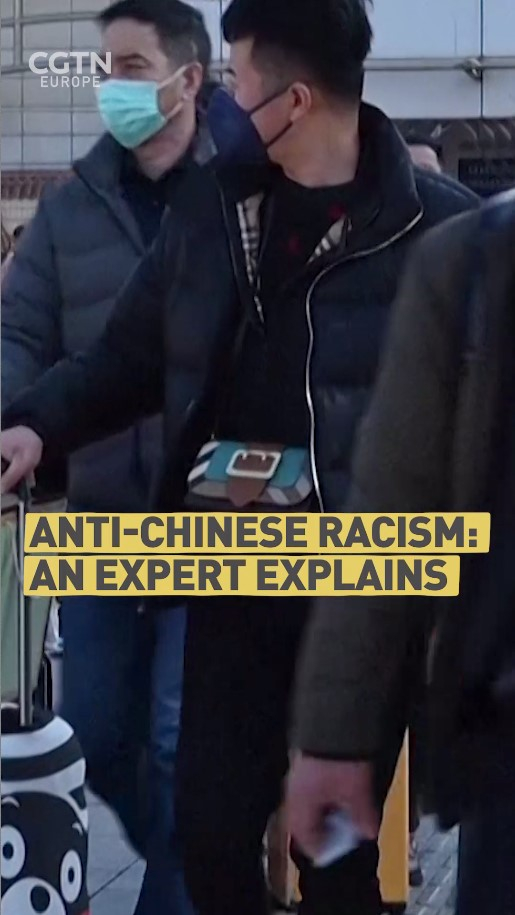
Cooperation, consultation and consideration
Those solutions are rarely easy to find, but it helps if authorities consult with scientists – and listen to them. On 8 April, the president of the EU's top science funding agency resigned in fury, issuing a near-thousand-word indictment of the bloc's response to COVID-19.
Italian-American scientist Mauro Ferrari walked away from leading the European Research Council (ERC) because he had "lost faith in the system" after his idea to "establish a special program directed at combating COVID-19" was "rejected unanimously by the governing body of the ERC."
Ferrari blamed an "internal political thunderstorm" for the "complete absence of coordination of healthcare policies among member states, the recurrent opposition to cohesive financial support initiatives, the pervasive one-sided border closures, and the marginal scale of synergistic scientific initiatives."
01:57
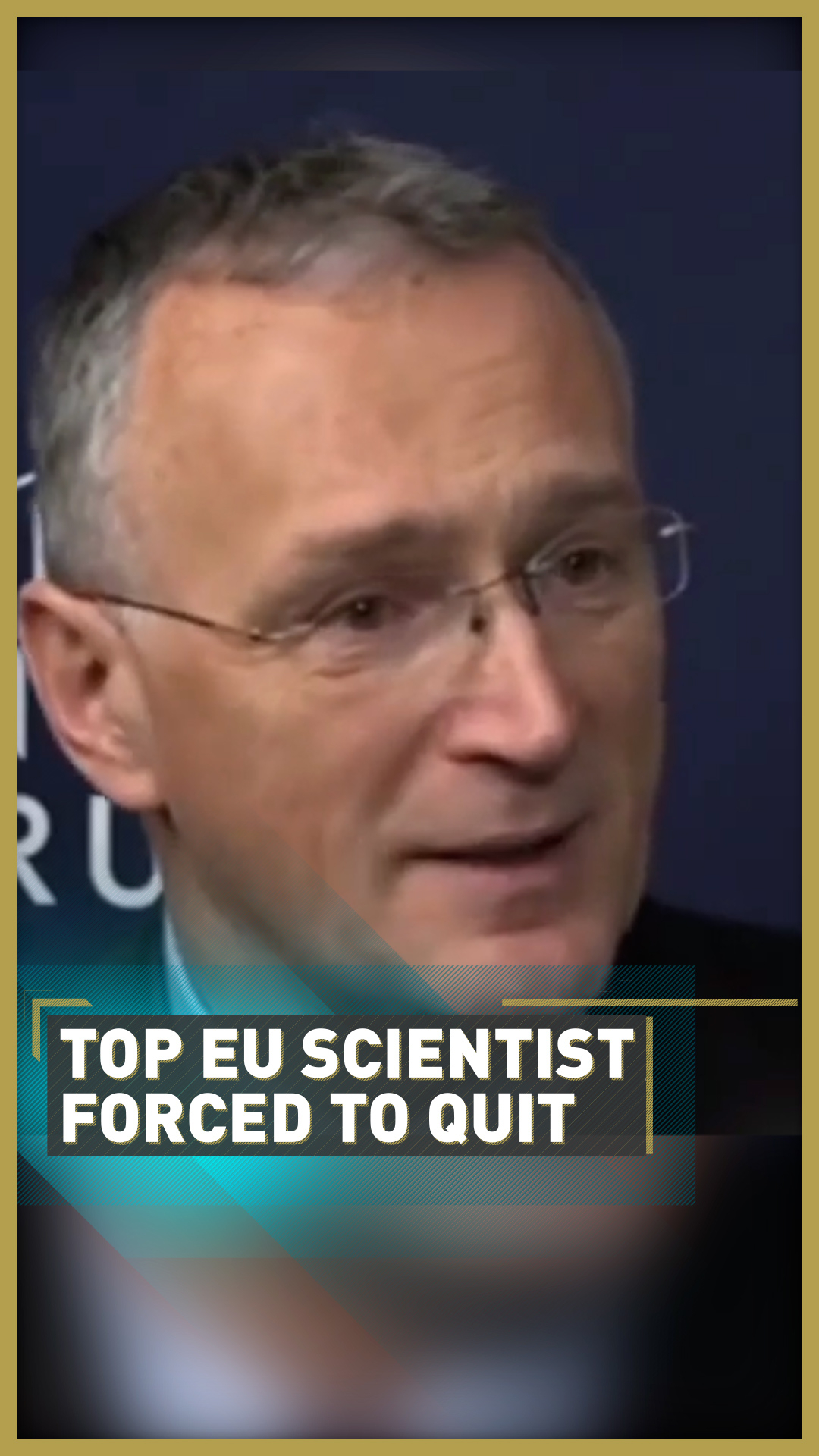
Ferrari wasn't alone in finding logistical, political and interpersonal difficulties impossible to overcome in the quest to stop a pandemic. While the WHO was imploring countries to cooperate, many concentrated on slamming doors and pointing fingers, while closing their ears to the experts with the most knowledge. It was a series of failings that would wreak lethal havoc across much of the planet.